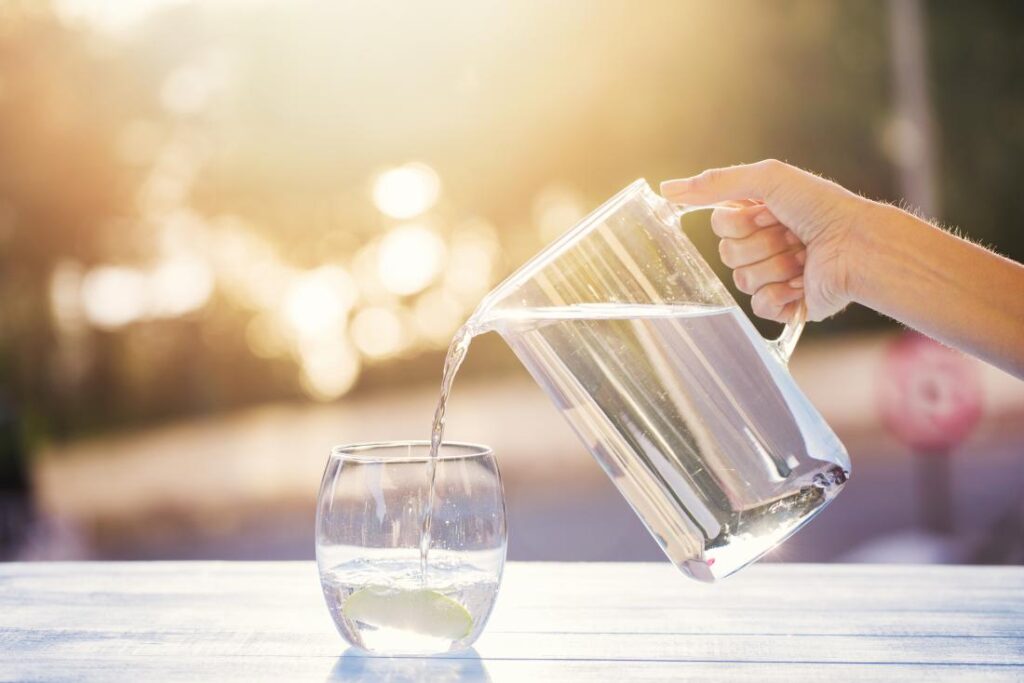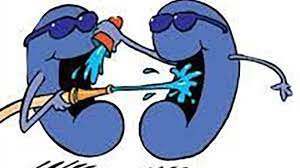
LiveIt not Diet
27 Health and Nutrition Tips That Are Actually Evidence-Based
(Source: healthlilne.com)
It’s easy to get confused when it comes to health and nutrition. Even qualified experts often seem to hold opposing opinions. Yet, despite all the disagreements, a number of wellness tips are well supported by research. Here are 27 health and nutrition tips that are actually based on good science.
1. Don’t drink sugar calories. Sugary drinks are among the most fattening items you can put into your body. This is because your brain doesn’t measure calories from liquid sugar the same way it does for solid food. Therefore, when you drink soda, you end up eating more total calories. Sugary drinks are strongly associated with obesity, type 2 diabetes, heart disease, and many other health problems. Keep in mind that certain fruit juices may be almost as bad as soda in this regard, as they sometimes contain just as much sugar. Their small amounts of antioxidants do not negate the sugar’s harmful effects.
15 Benefits of Drinking Water (Source: medicalnewstoday.com)
Keeping hydrated is crucial for health and well-being, but many people do not consume enough fluids each day. Around 60 percent of the body is made up of water, and around 71 percent of the planet’s surface is covered by water. Perhaps it is the ubiquitous nature of water that means drinking enough each day is not at the top of many people’s lists of priorities.
Fast facts on drinking water
- Adult humans are 60 percent water, and our blood is 90 percent water.
- There is no universally agreed quantity of water that must be consumed daily.
- Water is essential for the kidneys and other bodily functions.
- When dehydrated, the skin can become more vulnerable to skin disorders and wrinkling.
- Drinking water instead of soda can help with weight loss.
- Fifteen benefits of drinking water
- Possible benefits of drinking water range from keeping the kidneys healthy to losing weight.
- To function properly, all the cells and organs of the body need water.

Below are 15 reasons our bodies need water:
1. It lubricates the joints. Cartilage, found in joints and the disks of the spine, contains around 80 percent water. Long-term dehydration can reduce the joints’ shock-absorbing ability, leading to joint pain.
Water and the Kidneys
- Water helps dissolve minerals and nutrients, making them more accessible to the body. It also helps remove waste products.
- The kidneys play a key role in balancing fluid levels.
- Every day, the kidneys filter around 120-150 quarts of fluid.
- Of these, approximately 1-2 quarts are removed from the body in the form of urine, and the rest is recovered by the bloodstream.

- Water is essential for the kidneys to function.
- If the kidneys do not function properly, waste products and excess fluid can build up inside the body.
- Untreated, chronic kidney disease can lead to kidney failure. The organs stop working, and either dialysis or kidney transplantation is required.
- Urinary tract infections (UTIs) are the second most common type of infection in the body. They account for around 8.1 million visits to health care providers in the U.S. every year.
- If infections spread to the upper urinary tract, including the kidneys, permanent damage can result. Sudden, or acute, kidney infections can be life-threatening, particularly if septicemia occurs.
- Drinking plenty of water is a simple way to reduce the risk of developing a UTI and to help treat an existing UTI.
- Kidney stones interfere with how the kidneys work. When present, can complicate UTIs. These complicated UTIs tend to require longer periods of antibiotics to treat them, typically lasting 7 to 14 days.
- The leading cause of kidney stones is a lack of water. People who report them often do not drink the recommended daily amount of water. Kidney stones may also increase the risk of chronic kidney disease.
- In November 2014, the American College of Physicians issued new guidelines for people who have previously developed kidney stones. The guidelines state that increasing fluid intake to enable 2 liters of urination a day could decrease the risk of stone recurrence by at least half with no side effects.
- Dehydration happens if we use and lose more water than the body takes in. It can lead to an imbalance in the body’s electrolytes. Electrolytes, such as potassium, phosphate, and sodium, help carry electrical signals between cells. The kidneys keep the levels of electrolytes in the body stable when they function properly.
- When the kidneys are unable to maintain a balance in the levels of electrolytes, these electrical signals become mixed up. This can lead to seizures, involving involuntary muscle movements and loss of consciousness.
- In severe cases, dehydration can lead to kidney failure, which can be life-threatening. Possible complications of chronic kidney failure include anemia, damage to the central nervous system, heart failure, and a compromised immune system.
Recommended intake. How much water we need to consume is influenced by the climate. The amount of water needed each day varies from person to person, depending on how active they are, how much they sweat, and so on. There is no fixed amount of water that must be consumed daily, but there is general agreement on what a healthy fluid intake is. According to the U.S. National Academies of Sciences, Engineering, and Medicine, the average recommended daily intake of water from both food and drink is:
- For men: Around 3.7 liters or 125 ounces
- For women: Around 2.7 liters or 91 ounces
- This would be around 15.5 cups for men and just over 11 cups for women. However, around 80 percent of this should come from drinks, including water, and the rest will be from food.
This means that:
- Men should drink around 100 ounces, or 12.5 cups of fluid
- Women should drink around 73 ounces, or just over 9 cups
Fresh fruits and vegetables and all non-alcoholic fluids count towards this recommendation.
Times when it is most important to drink plenty of water include:
- when you have a fever
- when the weather is hot
- if you have diarrhea and vomiting
- when you sweat a lot, for example, due to physical activity
Some Other Facts About Water
- Babies and children have a higher percentage of water than adults. When babies are born, they are about 78 percent water, but this falls to 65 percent by the age of 1 year.
- Fatty tissue has less water than lean tissue.
- Men have more water than women, as a percentage.
Do we drink enough water? A study carried out by the Centers for Disease Control and Prevention (CDC) in 2013 analyzed data from the National Cancer Institute’s 2007 Food Attitudes and Behaviors Survey. Out of a sample of 3,397 adults, the researchers found:
- 7 percent of adults reported no daily consumption of drinking water
- 36 percent of adults reported drinking 1-3 cups of drinking water a day
- 35 percent of adults reported drinking 4-7 cups of drinking water a day
- 22 percent of adults reported drinking 8 cups or more a day
- People were more likely to drink less than 4 cups of drinking water daily if they consumed 1 cup or less of fruits or vegetables a day.
The study only measured the intake of drinking water. Fluid can be gained from other beverages, but water is best because it is calorie-free, caffeine-free, and alcohol-free. Seven percent of respondents reported drinking no water at all daily, and those who drank a low volume of water also consumed less fruit and vegetables. This suggests that a certain number of people are risking their health by not getting enough fluid. Even if the respondents reporting low levels of water intake were obtaining enough fluid, it is likely that they would be obtaining it from sources that could potentially compromise their health in other ways. “The biologic requirement for water may be met with plain water or via foods and other beverages,” write the study authors. “Results from previous epidemiologic studies indicate that water intake may be inversely related to volume of calorically sweetened beverages and other fluid intake.”
ALKALINE WATER
Hi this is Dianne Thompson, President and CEO of SWIM. I grew up in rural southwest Georgia where the cicadas sing and lightning bugs or fireflies for you city folks light up the night. One mainstay in my life during this time was the well water our family drank every day. In those days, I had no idea that we were drinking alkaline water and how beneficial it was to our bodies. Although there is currently not enough studies to back up the benefits of alkaline water, I can say it just makes me feel good and more refreshed after drinking it. The information that follows in this section is from the Natural Food Pantry website. Check out Dr. Otto Warburg below who famously said:
“No disease, including cancer, can exist in an alkaline environment.” – Dr. Otto Warburg
For his work on the aerobic and anaerobic metabolic processes in cells, Dr. Otto Warburg was awarded the Nobel Prize in Physiology Or Medicine in 1931. He suggested that cancer cells “live in hypoxic, very low oxygen, and acidic conditions and derive energy from sugars by fermenting them the way yeast does”. As cancer progresses, the body becomes more and more acidic as its pH drops below 7.35. His discoveries were revolutionary for their time, and contributed greatly to what we know about cancer today.
The pH scale ranges from 1 (highly acidic) to 14 (highly alkaline), while your body’s pH usually hovers between 7.35 and 7.4. Unfortunately, most of the foods that people consume today are full of sugar, preservatives, and genetically modified organisms – which all contribute to acidity in the body. The most alkaline foods are vegetables, as well as some fruits, grains, nuts, and alkaline water. Helping your body neutralize some of its acidity is crucial for maintaining your overall health.
While many years have passed since Warburg’s publications and studies, his discoveries still hold true today. Cancer can be partially attributed to prolonged exposure to toxins, especially in cells that haven’t been nourished, oxygenated, hydrated, and cleansed. And of course, as Warburg discovered, cancer cells cannot survive in an alkaline environment. To maintain your health and keep your body at its best, it is very important to keep your body nourished with fresh, wholesome foods, and hydrated with clean, alkaline water.

